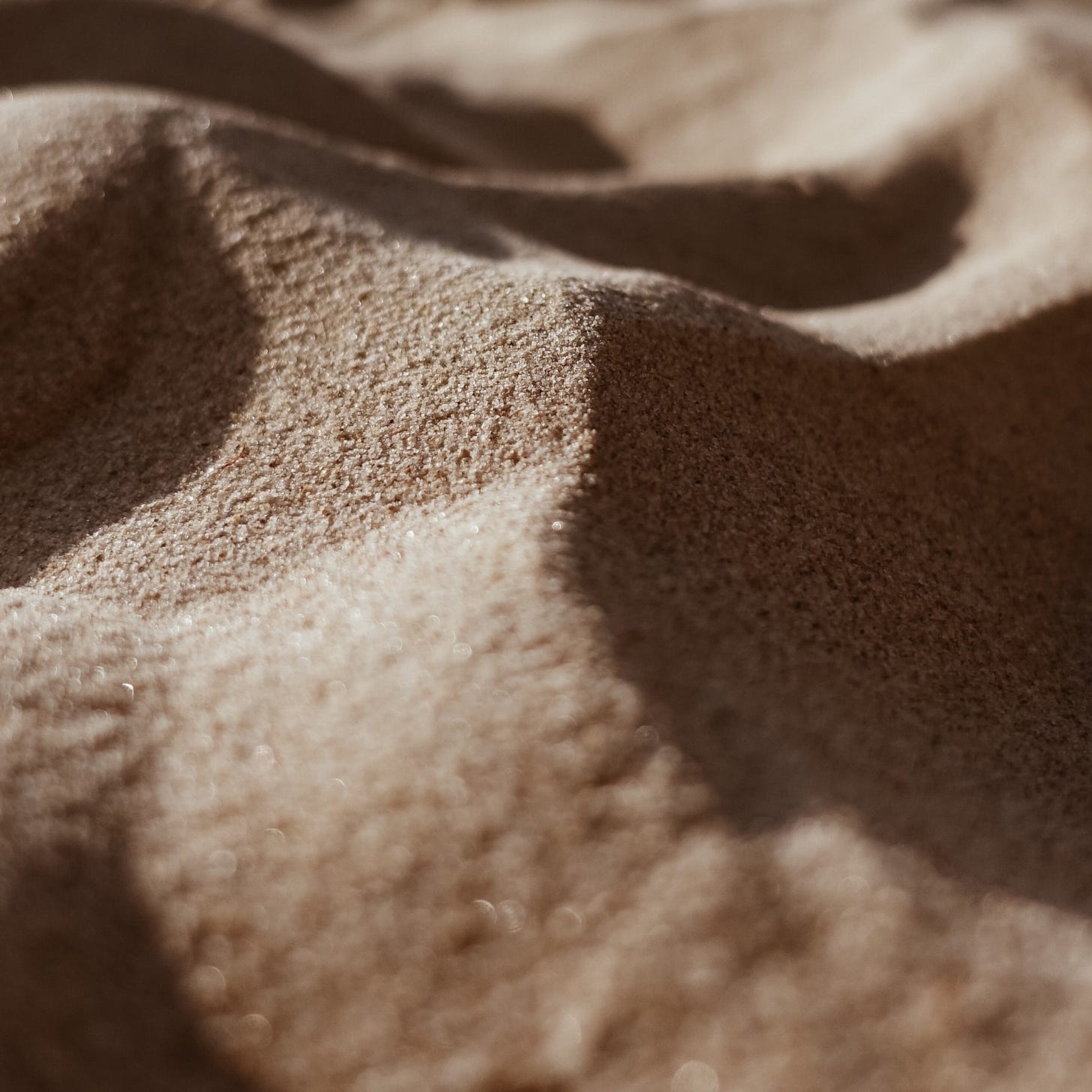Welcome to Circle Three: the fourth!
Read on about oil barrels, 1-on-1 meetings, and how to email a tree.
December typically brings reflective moods. As we enter this next week, my hope is we can focus on our ups and learn from our downs of the year. There’s certainly a lot to appreciate.
-Dan
Welcome to those just joining! So what’s with the name Circle Three? The term Circle Three comes from Seth Godin’s Linchpin, where he posits that the internet has created a circle beyond family and business: a tribe. Where knowledge is exchanged and our gifts are shared. See previous editions for my 2020 Integrity Report or The Math of Appreciation.
Thanks for being a part of the third circle. Let’s create something.
One Big Idea
Beautiful things don't ask for attention. - Sean O'Connell
How do you define true beauty? What things in your daily life do you consider beautiful that others might think of as ordinary? One of many great quotes from one of my favorite films, The Secret Life of Walter Mitty. There is true beauty in the subtleties of careful craft and attention.
Circles of Thought
Solar energy is years ahead of planned development. Forty years ahead according to industry expert Ramez Naam. The future of solar energy looks positive due to rapid scaling and technological advancement. Do you see solar in your daily life within five years?
Hopefully you look forward to your 1-on-1 meeting with your manager, but however you might feel about your meetings, here are seven tips I’ve found helpful to get the most out of those 1-on-1’s. “Think About Your Manager’s View” is my favorite.
To bring you a cute humorous story on this December Tuesday: “Melbourne gave 70,000 trees email addresses so people could report on their condition. But instead, people are writing love letters, existential queries, and sometimes just bad puns.” Humanity is good.
We know incredibly little about sand. So much so that the NYT wrote an article about just how little. And for those more scientifically inclined: here’s a thread about what makes sand so complex and why we understand about 3% of what there is to know. Not as promising as solar power for our immediate future.
“The Tire Iron and the Tamale” is a beautiful old account of the power of the mindset “You today, me tomorrow”, and the gift of gratitude and appreciation.
Consider Your Barrels
Turn on CNBC or tune into the energy sector and I'd venture a guess that you'll hear the term "barrels of oil" within a few hours, certainly that day.
It is, after all, the universal measurement of oil. Oil leaks are measured in barrels; global oil demand in 2020 will be 91.3 million barrels.
These mind-bogglingly large quantities of barrels conjure up visions of warehouses filled with barrels stacked stories high, waiting eagerly to be used as gas for your morning commute or travel for your Parisian getaway.
But guess what?
Oil barrels aren't real.
At least they’re not used. The Atlantic published an article in September 2017 about the oil barrel, a leaky and expensive shipping container. The barrels were originally wine casks, but evolved to be more costly than the 42 gallons of oil they each held. The development and use of tanker boats and pipelines have been specifically to eliminate the need for barrel transport.
What fascinates me is how the terminology and the physical oil barrel have become two distinct entities.
"Oil companies needed barrels, but they didn't want them."
Barrels exist as a concept, no longer physically serving the need for which they served. My visions become imaginary barrels stacked in an imaginary barrel warehouse. Barrels aren't used to transport oil, but the moniker remains. Barrels simplify economic structures in a unified language.
[At a large scale, this is the concept of social reality. The world is real to you. We have social structures and physical borders that are real by our own creation. It's one of the superpowers of the brain to understand this social reality. But I digress...]
Where else does this separation exist between perpetuated concept and physical reality?
One simple example of a concept buried in an old reality is in a phrase we know and love: "roll up the window."
This also exists within inefficient business systems that haven't scaled up with revenue or work output; these are corporate relics that no longer directly serve the original purpose but are suitable and understood by the masses.
It’s important to take time to challenge these disparities. To ask, "Does barrel make the most sense to use? What could make this be better?"
One of my pandemic pastimes has been listening to stories of major transitions; these are stories of recognition, when new systems replaced old.
The end of the calendar year and the continued pandemic offer time to reconsider concepts in our personal and professional lives that, like the oil barrel of the 19th century, served a purpose, but that may, like the oil barrel term today, be a relic of a former era.
State of the Circle
If you like what you’re reading and want to share it, click below!



